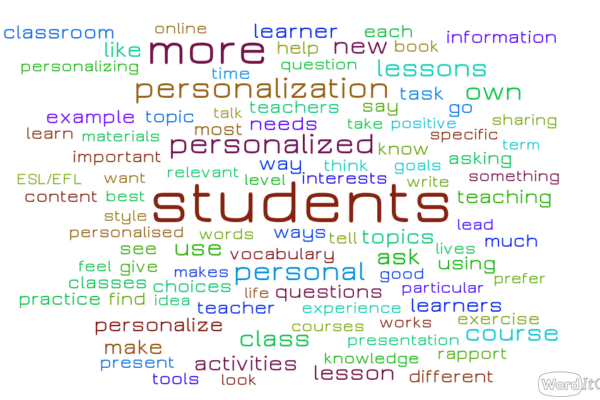Why teachers need to explain things
The other day I came across a box of notes written by my students at the end of term. During a while I used to systematically ask for feedback from my students and I had a lesson ready for that for all the levels and age groups that I taught, from young learners to adults. The very last activity was the feedback note, which my students wrote both in Portuguese and in English, whichever language they felt more comfortable with. They were free not to sign their notes with their own names, although, funnily enough, most students did choose to write their names. There were some ground rules, though: Number one rule was to be nice and respectful, but by being nice we didn’t mean to say good things only. Rather being nice meant not insulting me, the institution, or their classmates when they addressed the negative points. I also asked my students to talk about their group experience and how they thought the school helped them learn more and to feel welcome. I didn’t provide a frame or anything for that matter. They were free to write down whatever they judged necessary. It was good in the sense that I could see what their priorities were and how they viewed their own learning process as a result of their interactions with me and their peers. It was funny because some students would only mention their classes in the feedback and how they felt in relation to their classmates while others would only mention me in their feedback despite all the brainstorming stage, which highlighted the possible factors that lead up to learning. It’s rather disappointing for most of us to see that we’re not always at the center of their thoughts. However, it doesn’t mean that it’s not about us, teachers. We’re there all the time, but students also need opportunities to connect with others and to develop a group sense as well. It’s just beautiful when they can see themselves as a group learning things together and being there for each other. I’ve had the opportunity to see it happen in many classes and I know we’ve accomplished it when it’s our last class and it’s hard for us to say goodbye.
As much as group sense is important, one thing that has always caught my attention is what students consider to be a good teacher. I know that we teachers have been pretty much interested in discussions about affect, native speakerism, learning technologies, and buzzwords such as 21st century learners. However, one aspect of teaching that is hardly ever mentioned is explaining how things work in the English language. Don’t we still need to draw timelines and to explain the differences between the infinite uses of the present perfect in the English language? Honestly, I can’t recall attending a workshop on how to teach the future tense or how to introduce students to prepositions. And yet, being able to explain things well is mentioned by more than half of my students as a characteristic of good teachers. It’s so obvious that we hardly ever notice it, but asking students for feedback is a great way of putting things into perspective. Here’s what some students wrote about what makes a good class. I’ve chosen the parts that highlight presentation skills and how they impacted my students’ learning:
“I like my classes because I can understand how I can use something when I’m speaking or writing. “ (M. aged 13)
“A good teacher is fun, patient, charismatic, and is good at explaining something.” (B. aged 11)
“I like my classes because the teacher explains grammar well.” (A. aged 16)
“I wish I could understand things better, (…) I feel terrible when I don’t understand how I’m supposed to say something.” (L. adult – intermediate)
“I will always remember some of the things you explained to us, such as the pronunciation of the –ed of the verbs in the past. It was so funny!” (G. probably aged between 14-16)
These notes are just reminders that good old teaching still rocks. I’m not suggesting we go back to chalk-and-talk only, but we still need to work on our presentation skills in order to walk our students through the language. Rather than relying on technology alone to do it for us, we should rely on our own experiences and our interactions with our students to share what we know. In today’s world with so much technology flowing in our lives, our students can get information just anywhere. In fact, anyone can explain things, but good teachers do it beautifully.






